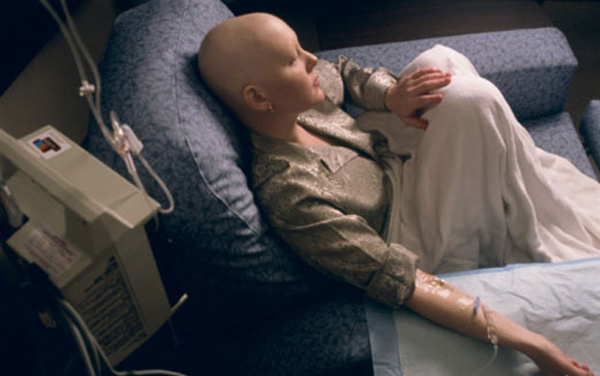On August 12th, US researchers said on the 11th that bone marrow transplantation does not require dangerous and harmful chemotherapy may soon become possible, and experiments in mice have been initially successful. This strategy, developed by the research team at Stanford University in California, mimics the strategy used by immunotherapy, in which cancer patients receive a treatment that trains the immune system to attack tumor cells. If the study works in humans, it will help improve the treatment of lupus, childhood diabetes, multiple sclerosis, organ transplantation, and even cancer. Irving Weissman, co-author of the study and a professor of pathology and developmental biology at Stanford University, said: "This study affects almost all diseases and organ transplants." The findings were published in the journal Science Translating Medicine (Science Translational Medicine).
Cardiovascular:
Relating to the
circulatory system, which comprises the heart and blood vessels and carries
nutrients and oxygen to the tissues of the body and removes carbon dioxide and
other wastes from them. Cardiovascular diseases are conditions that affect the
heart and blood vessels and include arteriosclerosis, coronary artery disease,
heart valve disease, arrhythmia, heart failure, hypertension, orthostatic
hypotension, shock, endocarditis, diseases of the aorta and its branches, disorders
of the peripheral vascular system, and congenital heart disease.Related Products:cardiovascular drugs.
Urinary:
For the treatment
ofl some diseases of the urinary system.
Different
specialists treat urinary system ailments. Nephrologists treat kidney diseases,
while urologists treat problems with the urinary tract, including the kidneys,
adrenal glands, ureters, bladder and urethra, according to the American
Urological Association (AUA). Urologists also treat the male reproductive
organs, while gynecologists often treat urinary diseases or disorders in
females, including yeast infections. Nephrologists and urologists often work
with endocrinologists or oncologists, depending on the disease.
Urinary tract
infections (UTIs) occur when bacteria enters the urinary tract and can affect
the urethra, bladder or even the kidneys. While UTIs are more common in women,
they can occur in men. UTIs are typically treated with antibiotics, according
to Dr. Oscar Aguirre, a urogynecologist in Denver.
Incontinence is another
common disease of the urinary system. It can come in the form of a pelvic
prolapse, which can result in leakage and can be the result of a vaginal
delivery. Then there is the overactive bladder, [which we see a lot and is not
related to having children or trauma," Aguirre said. A third condition involves
overflow, in which the bladder does not completely empty.
Some common
treatments involve medications, physical therapy and pelvic mesh surgery,
Aguirre noted. Vaginal laser surgery is also becoming a viable treatment
option, he explained. [In another 10 to 15 years, vaginal laser surgery will be
another common option for the treatment of urinary conditions."
Interstitial
cystitis (IC), also called painful bladder syndrome, is a chronic bladder
condition, primarily in women, that causes bladder pressure and pain and,
sometimes, pelvic pain to varying degrees, according to the Mayo Clinic. It can
cause bladder scarring, and can make the bladder less elastic. While the cause
isn`t known, many people with the condition also have a defect in their
epithelium, the protective lining of the bladder.
Prostatitis is a
swelling of the prostate gland and, therefore, can only occur in men. Often
caused by advanced age, symptoms include urinary urgency and frequency, pelvic
pain and pain during urination, the Mayo Clinic noted.
Kidney stones are
clumps of calcium oxalate that can be found anywhere in the urinary tract. Kidney
stones form when chemicals in the urine become concentrated enough to form a
solid mass, according to the Cleveland Clinic. They can cause pain in the back
and sides, as well as blood in the urine. Many kidney stones can be treated
with minimally invasive therapy, such as extracorporeal shock wave lithotripsy,
which disintegrates the kidney stones with shock waves.
Kidney failure,
also called renal failure and chronic kidney disease, can be a temporary (often
acute) condition or can become a chronic condition resulting in the inability
of the kidneys to filter waste from the blood. Other conditions, such as
diabetes and hypertension, can cause chronic kidney disease, according to the
Mayo Clinic. Acute cases may be caused by trauma or other damage, and may
improve over time with treatment. However, renal disease may lead to chronic
kidney failure, which may require dialysis treatments or even a kidney
transplant.
Bladder cancer is
diagnosed in about 75,000 Americans each year and is more frequent in men and
the elderly according to the American Cancer Society. The symptoms, including
back or pelvic pain, difficulty urinating and urgent/and or frequent urination,
mimic other diseases or disorders of the urinary system.
Cardiovascular & Urinary,Digoxin Drug,Captopril Drug,Chlorpheniramine Drug NOUVASANT GROUP LTD. , https://www.nouvasant.com
The future of bone marrow transplantation or chemotherapy-free is really the gospel of cancer patients!
